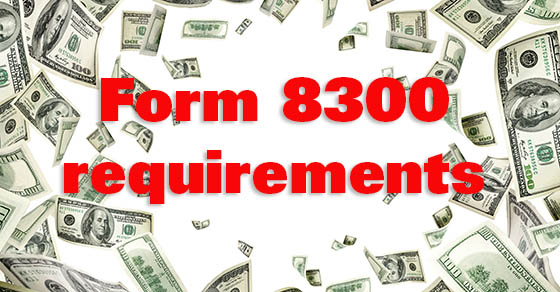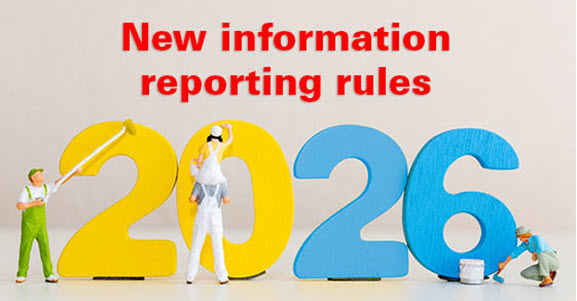Does your business receive large amounts of cash or cash equivalents? If so, you’re generally required to report these transactions to the IRS — and not just on your tax return.
The requirements
Each person who, in the course of operating a trade or business, receives more than $10,000 in cash in one transaction (or two or more related transactions), must file Form 8300. Who is a “person”? It can be an individual, company, corporation, partnership, association, trust or estate. What are considered “related transactions”? Any transactions conducted in a 24-hour period. Transactions can also be considered related even if they occur over a period of more than 24 hours if the recipient knows, or has reason to know, that each transaction is one of a series of connected transactions.
In order to complete a Form 8300, you’ll need personal information about the person making the cash payment, including a Social Security or taxpayer identification number.
The definition of “cash” and “cash equivalents”
For Form 8300 reporting purposes, cash includes U.S. currency and coins, as well as foreign money. It also includes cash equivalents such as cashier’s checks (sometimes called bank checks), bank drafts, traveler’s checks and money orders.
Money orders and cashier’s checks under $10,000, when used in combination with other forms of cash for a single transaction that exceeds $10,000, are defined as cash for Form 8300 reporting purposes.
Note: Under a separate reporting requirement, banks and other financial institutions report cash purchases of cashier’s checks, treasurer’s checks and/or bank checks, bank drafts, traveler’s checks and money orders with a face value of more than $10,000 by filing currency transaction reports.
The reasons for reporting
Although many cash transactions are legitimate, the IRS explains that the information reported on Form 8300 “can help stop those who evade taxes, profit from the drug trade, engage in terrorist financing and conduct other criminal activities. The government can often trace money from these illegal activities through the payments reported on Form 8300 and other cash reporting forms.”
Failing to comply with the law can result in fines and even jail time. In one case, a Niagara Falls, NY, business owner was convicted of willful failure to file Form 8300 after receiving cash transactions of more than $10,000. In a U.S. District Court, he pled guilty and was recently sentenced to five months home detention, fined $10,000 and he agreed to pay restitution to the IRS. He had received cash rent payments in connection with a building in which he had an ownership interest.
Forms can be sent electronically
Businesses required to file reports of large cash transactions on Forms 8300 should know that in addition to filing on paper, e-filing is an option. The form is due 15 days after a transaction and there’s no charge for the e-file option. Businesses that file electronically get an automatic confirmation of receipt when they file.
Effective January 1, 2024, you may have to e-file Forms 8300 if you’re required to e-file other information returns, such as 1099 and W-2 forms. You must e-file if you’re required to file at least 10 information returns other than Form 8300 during a calendar year.
The IRS also reminds businesses that they can “batch file” their reports, which is especially helpful to those required to file many forms.
Record retention
You should keep a copy of each Form 8300 for five years from the date you file it, according to the IRS. “Confirmation receipts don’t meet the recordkeeping requirement,” the tax agency added.
Contact us with any questions or for assistance.
© 2023
Q&As
How do businesses typically track and document cash transactions to ensure compliance with IRS reporting regulations?
Businesses typically track and document cash transactions to ensure compliance with IRS reporting regulations by using methods such as cash registers, point-of-sale (POS) systems, manual logs and journals, daily bank deposits of cash receipts, and regular reconciliations of cash registers or POS systems with actual cash on hand. All of these methods help maintain accurate records of cash sales, which in turn aids in accurate filing of Form 8300.
What types of businesses typically receive large amounts of cash or cash equivalents?
Businesses that typically receive large amounts of cash or cash equivalents are those that deal with high-volume sales or transactions. Some examples include retail businesses, restaurants and bars, casinos, hotels and resorts, street vendors, car washes, and laundromats. It is important for these types of businesses to have proper systems in place to handle and account for large amounts of cash to ensure accuracy and security.






